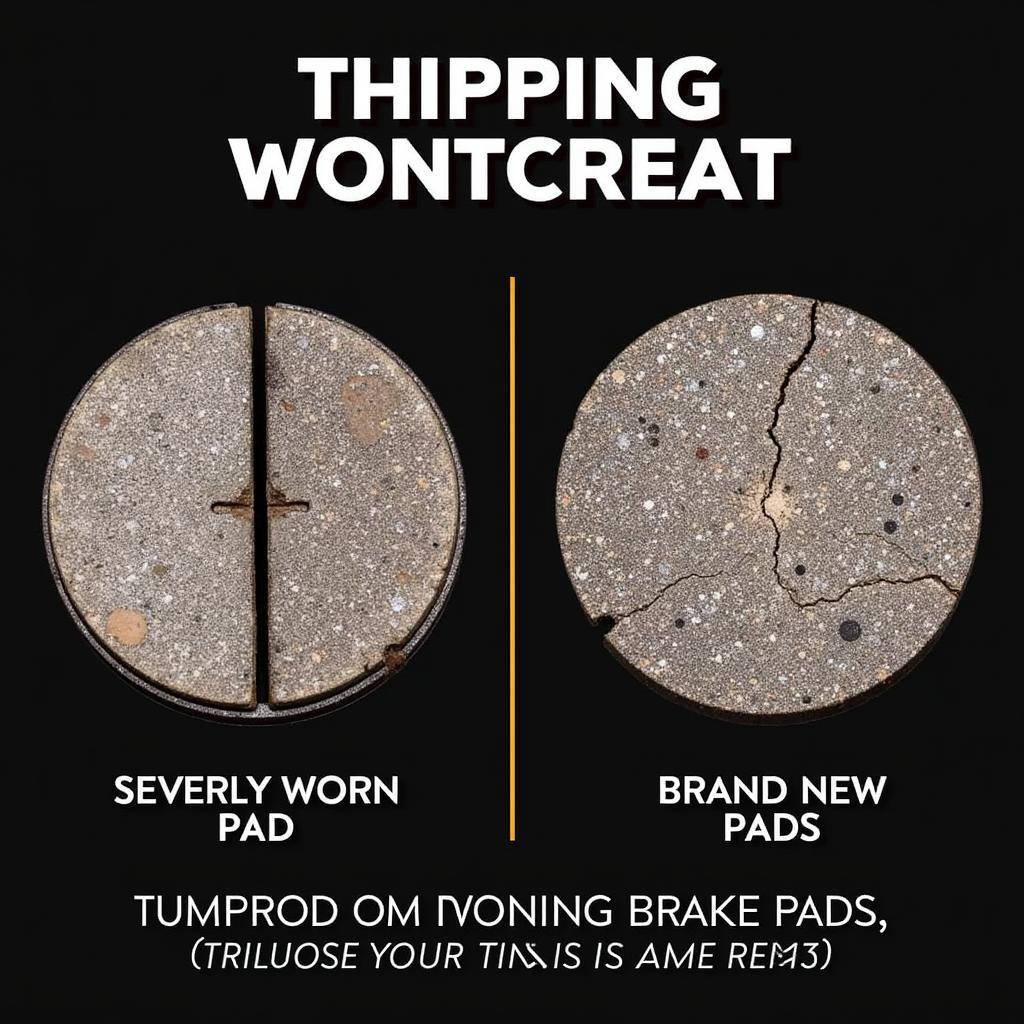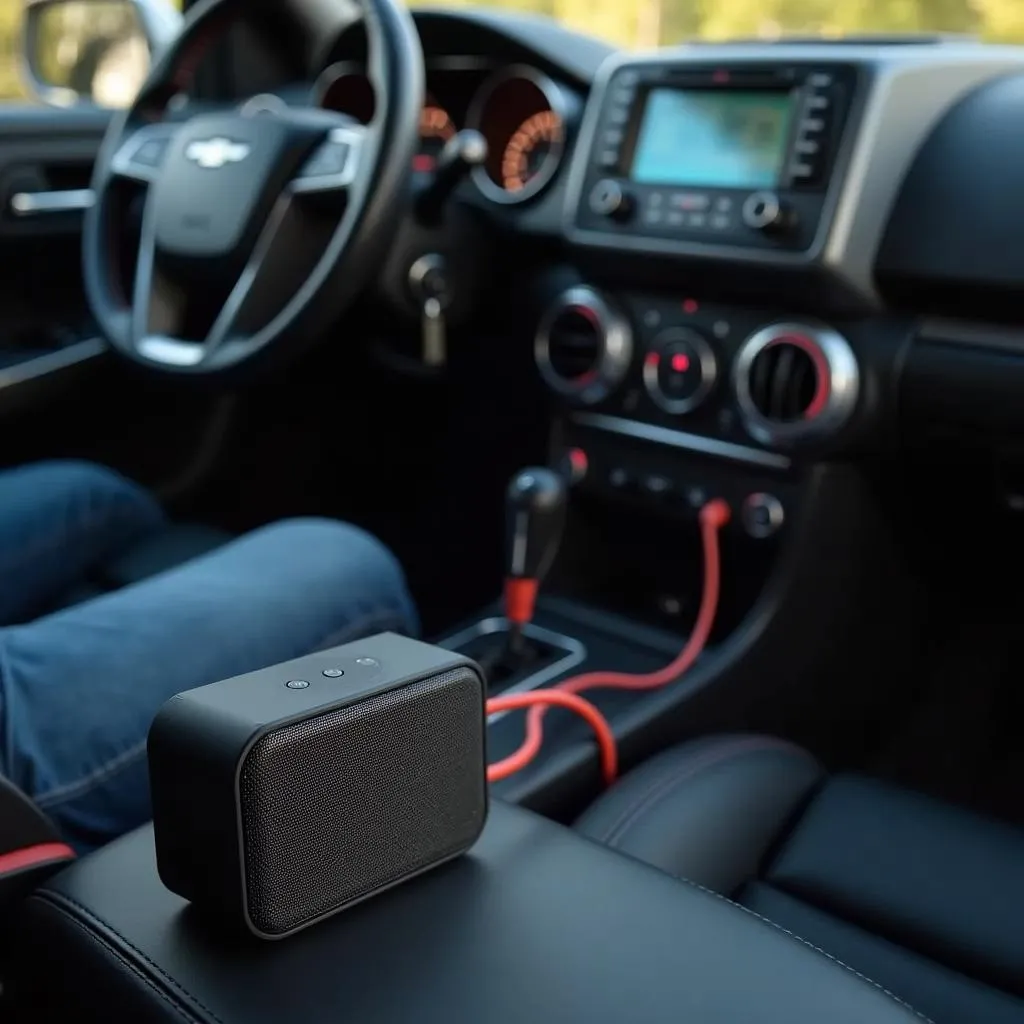A persistent brake warning light on your Ford Focus dashboard can be unnerving. While it might signal a minor issue, it could also indicate a serious problem within your braking system. This comprehensive guide will delve into the common causes of a Ford Focus brake warning light staying on and provide potential solutions to help you get back on the road safely.
Understanding Your Ford Focus Brake Warning Light
Your Ford Focus utilizes a sophisticated system of sensors to monitor brake fluid levels, brake pad wear, and the overall health of the braking system. When the system detects an issue, it illuminates the brake warning light on your dashboard.
Common Causes of a Ford Focus Brake Warning Light Staying On
1. Low Brake Fluid Level
One of the most frequent culprits for an illuminated brake warning light is low brake fluid. Brake fluid is the lifeblood of your braking system, transmitting the force from your foot on the brake pedal to the brake calipers, which then engage the brake pads.
How to Check Your Brake Fluid Level:
- Locate the brake fluid reservoir under the hood of your Ford Focus. It’s typically a translucent plastic container with a black cap.
- Caution: Brake fluid is corrosive. Avoid contact with your skin or the painted surfaces of your vehicle.
- Check the fluid level against the “Min” and “Max” markings on the reservoir. If the level is low, add the correct type of brake fluid as specified in your owner’s manual.
Important: If you frequently need to add brake fluid, it’s crucial to have your braking system inspected by a qualified mechanic. Leaking brake fluid is a severe safety concern.
2. Worn Brake Pads
Brake pads are designed to wear down over time. When they reach a certain thickness, your Ford Focus will activate the brake warning light to alert you that it’s time for a replacement.
Signs of Worn Brake Pads:
- Squealing or screeching sounds when braking
- Grinding noises when applying the brakes
- Vibration or pulsation in the brake pedal
- Your vehicle pulling to one side while braking
Tip: If you notice any of these signs, don’t delay getting your brake pads checked. Driving with worn brake pads can significantly reduce your braking efficiency and put you at risk.
 Worn Brake Pads vs New Brake Pads
Worn Brake Pads vs New Brake Pads
3. Faulty Brake Light Switch
The brake light switch, located behind your brake pedal, is responsible for activating your brake lights when you press the pedal. A malfunctioning brake light switch can sometimes trigger the brake warning light.
How to Identify a Faulty Brake Light Switch:
- Your brake lights don’t illuminate when the brake pedal is depressed.
- Your brake lights stay on even when the brake pedal is released.
Note: While a faulty brake light switch might seem like a minor issue, it can lead to dangerous situations as other drivers won’t be aware when you’re braking.
4. ABS System Malfunction
Modern Ford Focus models come equipped with an Anti-lock Braking System (ABS). The ABS system prevents wheel lockup during hard braking, helping you maintain steering control. If the ABS system encounters a problem, it can trigger the brake warning light.
Signs of an ABS System Issue:
- The ABS warning light illuminates alongside the brake warning light.
- You feel unusual pulsations or vibrations in the brake pedal during braking.
- The ABS system fails to engage when you brake hard on slippery surfaces.
Important: Diagnosing and repairing ABS system problems requires specialized knowledge and tools. It’s recommended to consult with a qualified mechanic or an automotive electrician.
5. Electrical Issues
Like any modern vehicle, the Ford Focus relies heavily on electronics. Electrical issues, such as a blown fuse, a loose connection, or a faulty sensor, can disrupt the brake warning light system.
Tip: If you suspect an electrical issue, it’s best to seek professional help. Attempting to troubleshoot electrical problems without proper knowledge can potentially worsen the situation.
When to Seek Professional Help
While some brake warning light issues might seem minor, it’s always best to err on the side of caution when it comes to your safety. Here are situations when you should consult with a qualified mechanic immediately:
- Leaking brake fluid: A brake fluid leak is a serious safety concern and requires immediate attention.
- Grinding noises when braking: This often indicates severely worn brake pads, potentially damaging your brake rotors.
- ABS warning light illuminated: ABS system issues require specialized diagnostic equipment and expertise.
- Unsure about the cause: If you’re uncertain why your brake warning light is on, don’t hesitate to seek professional guidance.
Conclusion
A persistent brake warning light on your Ford Focus is a clear sign that something needs attention. By understanding the common causes outlined in this guide, you can take the appropriate steps to address the issue. Remember, a well-maintained braking system is paramount for your safety and the safety of others on the road. When in doubt, always consult with a qualified mechanic to ensure your Ford Focus is in optimal condition.

